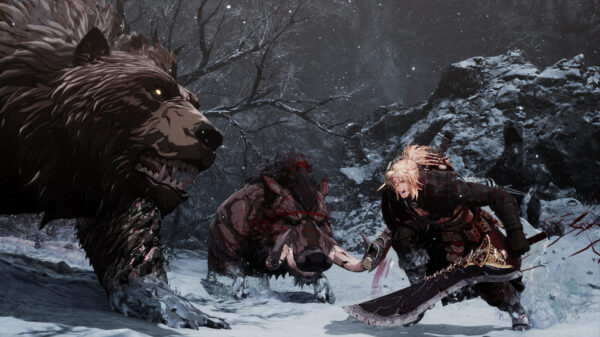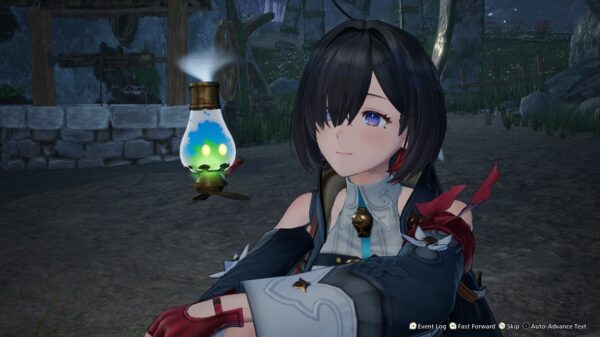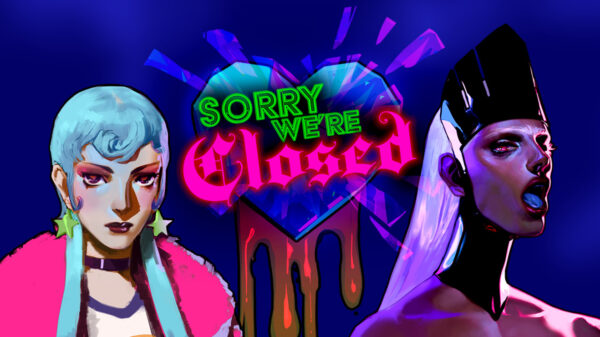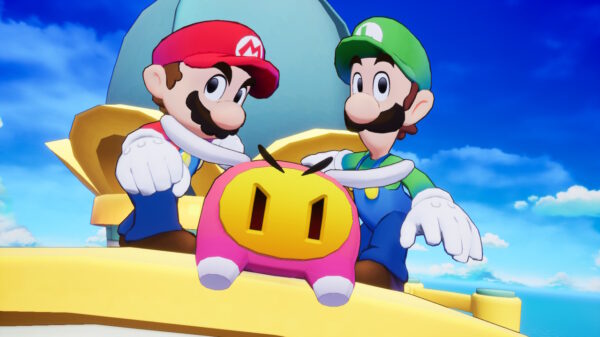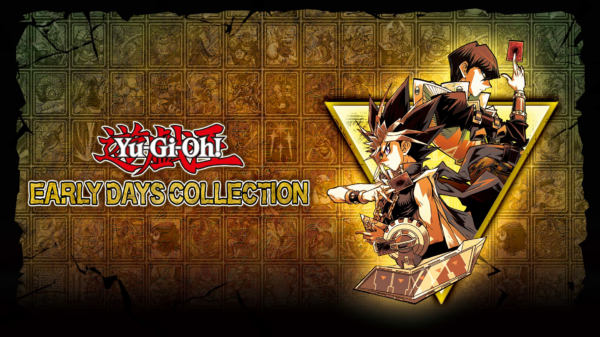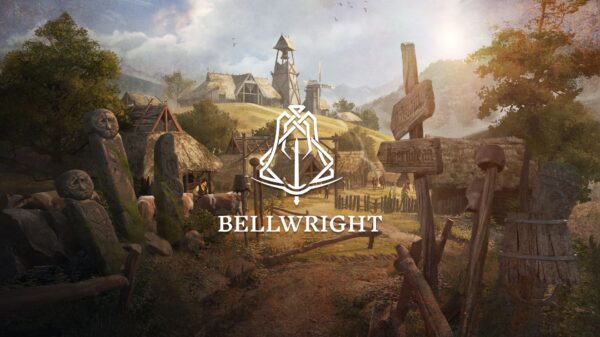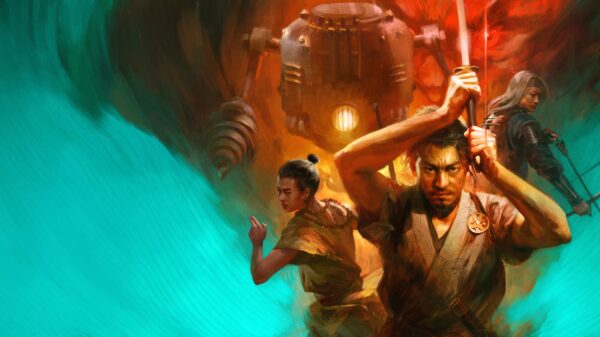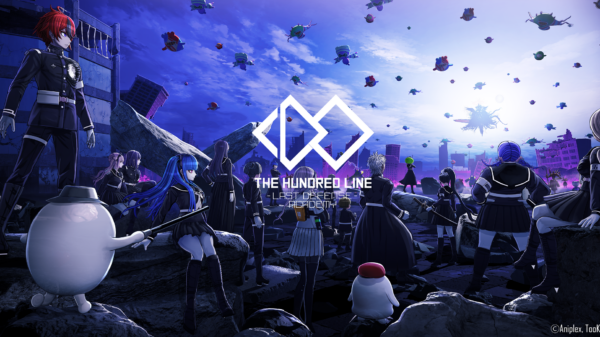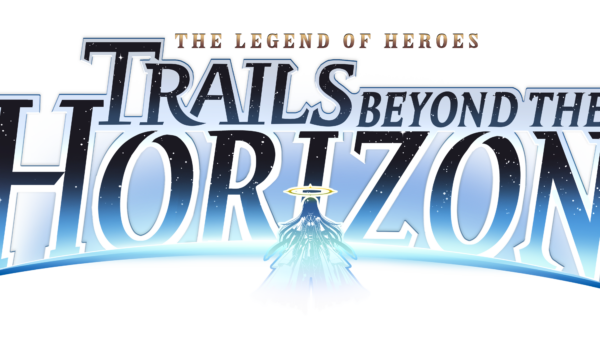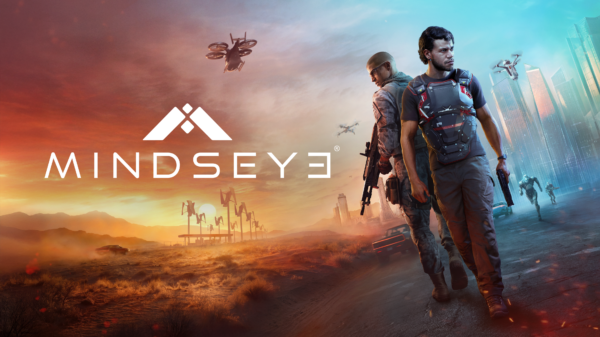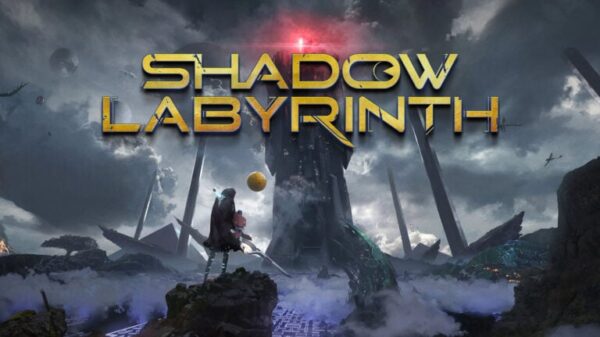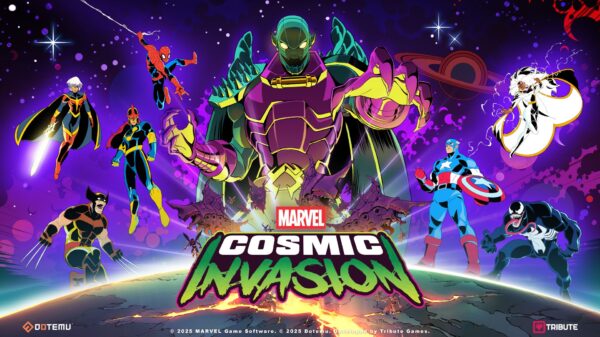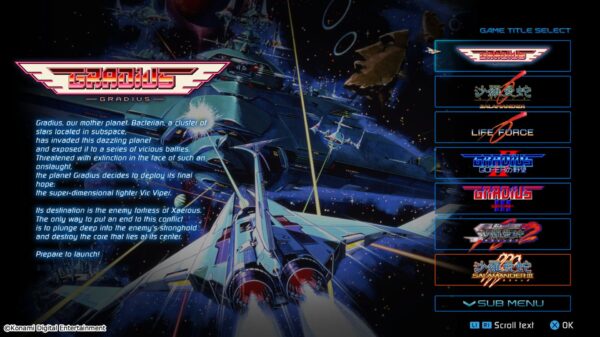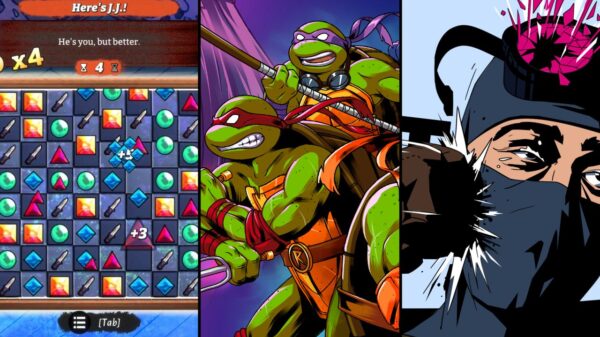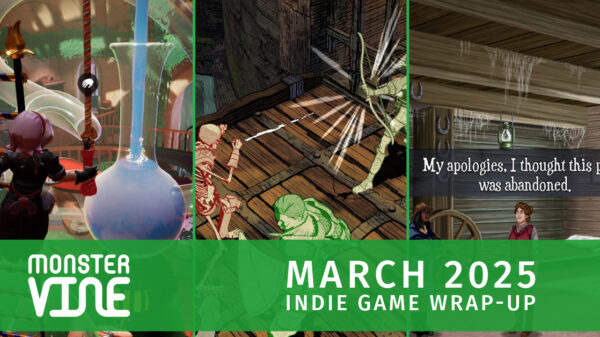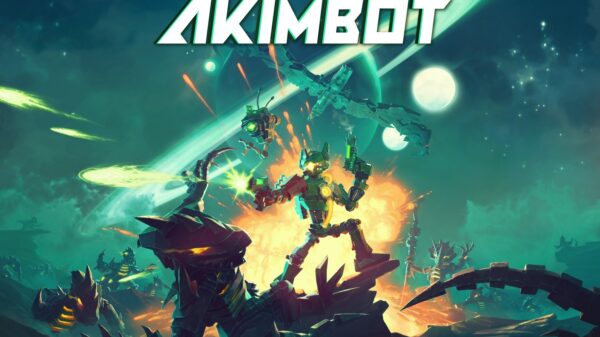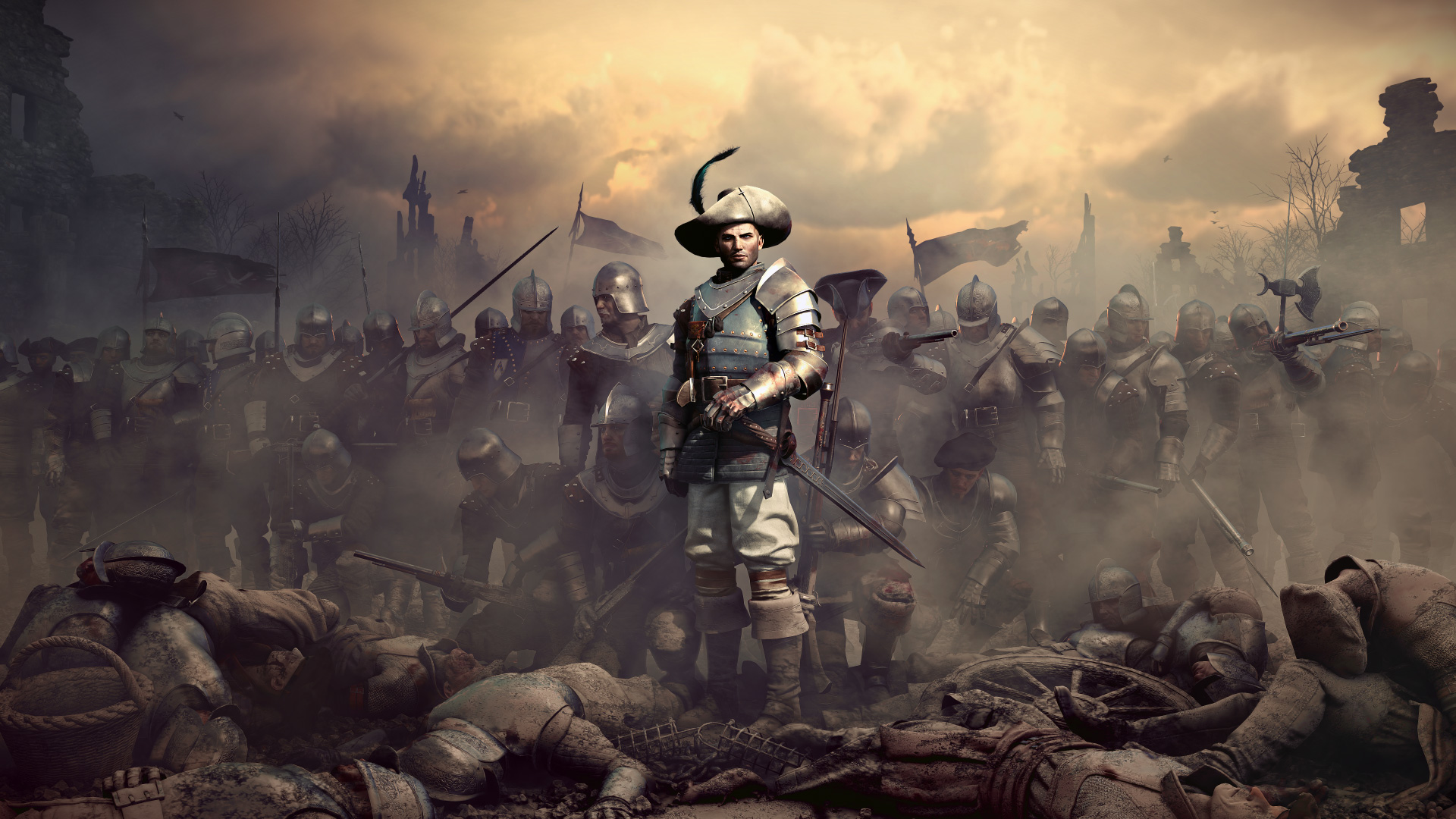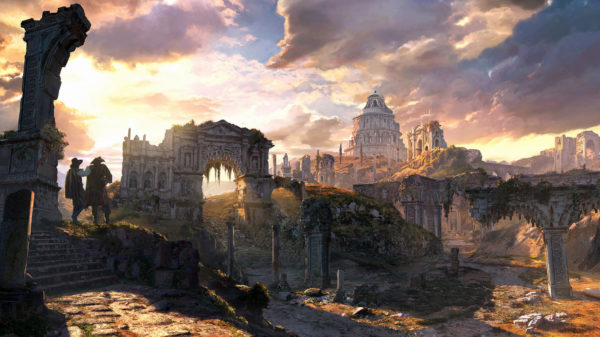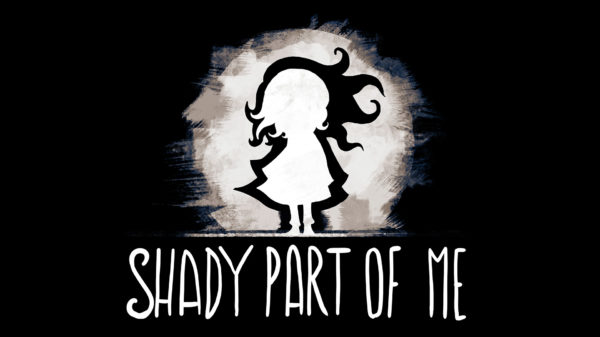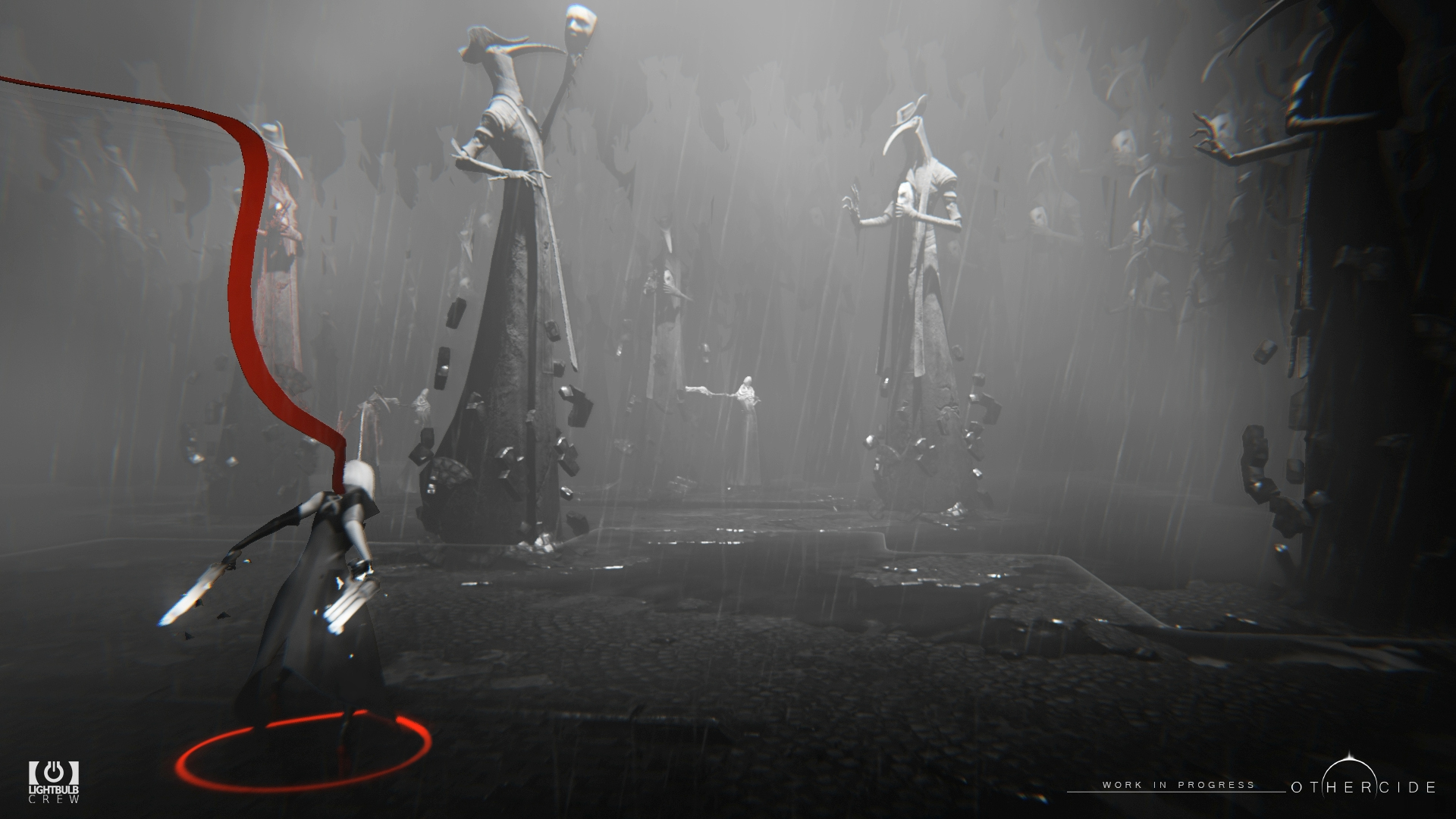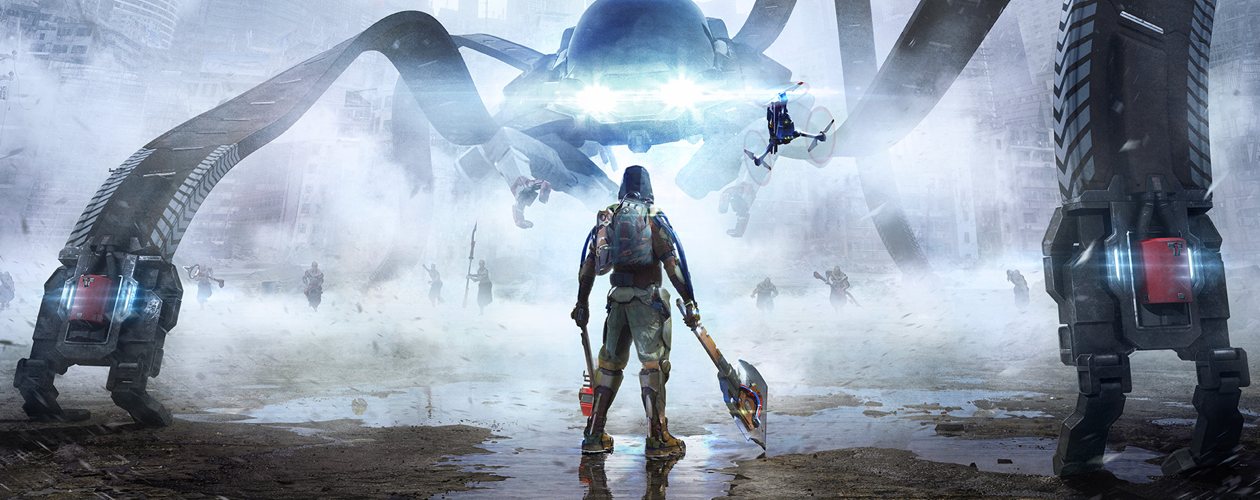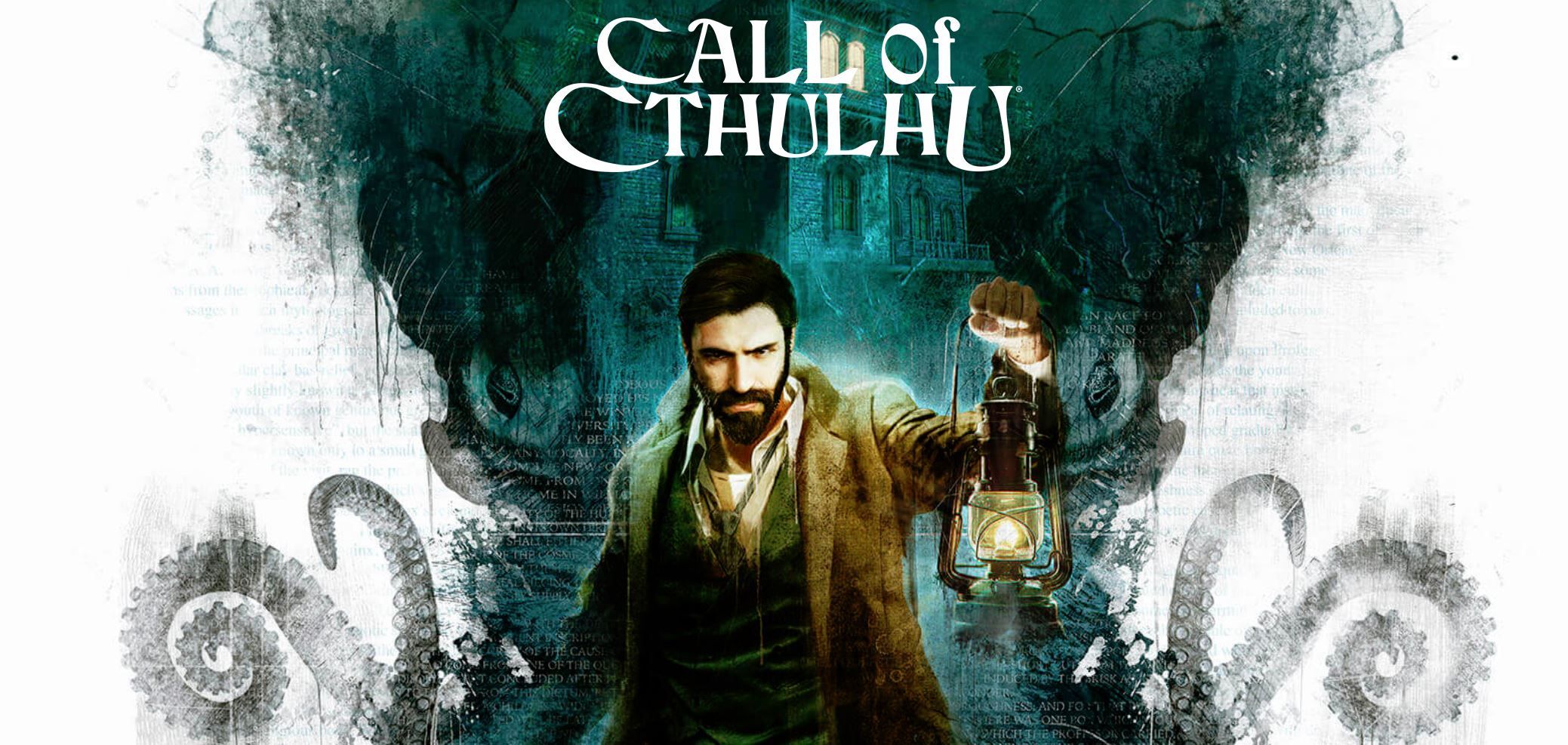Greedfall stands tall and proud, smoothly knocking back a fine vintage port. It looks around the room admiring those keeping it company. While the others are wearing high-end expensive fashion, Greedfall sports a more high-street look made to look like more than it is. But sometimes faking it till you make it works.
Greedfall
Developer: Spiders
Price: $60 USD
Platform: PC, PS4, Xbox One
MonsterVine was supplied with Steam code for review
Hailing from French Developer Spiders (Of Orcs & Men, Bound By Flame, The Technomancer), Greedfall marks a big step forward in scope both for the team and middle-market titles on the whole. The action RPG brings us to a less covered setting of an island paradise, freshly colonized by a modern nation. De Sardet, the game’s protagonist, is sent to the said island as a part diplomat, part busybody under the title of Merchant Congregation. While this does provide valid reasons to interact with the cast of the game, it, unfortunately, highlights a key issue with the game.
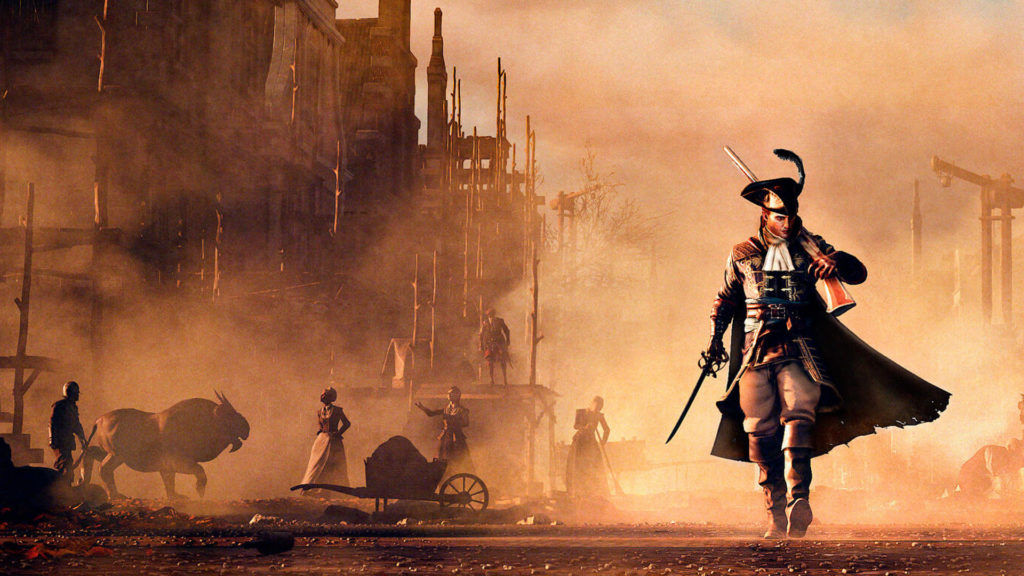
A key ingredient to truly fantastic RPGs is the stories told throughout their run time. Be it primary plots or side quests. A good narrative can produce a wealth of memories and satisfaction. Greedfall’s initial stumbling can be traced directly to its odd choices in narrative. The core plot revolves around finding a cure for the malichor plague, a blight engulfing De Sardet’s homeland. Where the main story interchanges between expected tropes of good vs evil, the side-quests tend to touch upon more engaging topics.
With the island’s ongoing colonization, Greedfall springs up a number of opportunities to engage with the natives and explore the friction between them and their newly arrived neighbours. This is where De Sardet’s role of Merchant Congregation truly grows into its own. From brokering peace between warring tribes to aiding the downtrodden from under the boot of the newly formed establishment, there’s plenty of room for great storytelling.
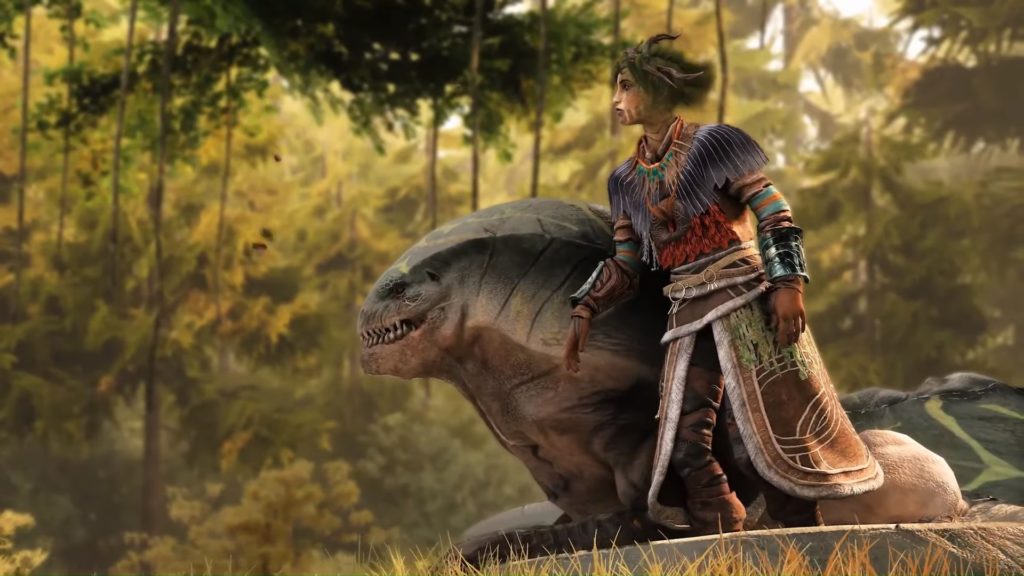
Spiders has a history in tackling similar topics in their past games, so to see such themes covered in Greedfall comes as no surprise. The difference in Greedfall, to say The Technomancer, is that there should be a more tangible feeling to a resolution. Learning the cultures of the islanders and how they reflect their behaviours does wonders for world-building and player investment. The issue is, it often results in very little.
For every quest that ends through diplomacy and actual role-playing, there are several that simply boil down to combat. It’s a genuine shame that stories and events with such a sense of grey boil down to very basic climaxes. Admittedly, this is a problem with modern Western action-RPGs, but Greedfall feels like it wants to, and should, shoot for more than conforming to expectations set by its peers.
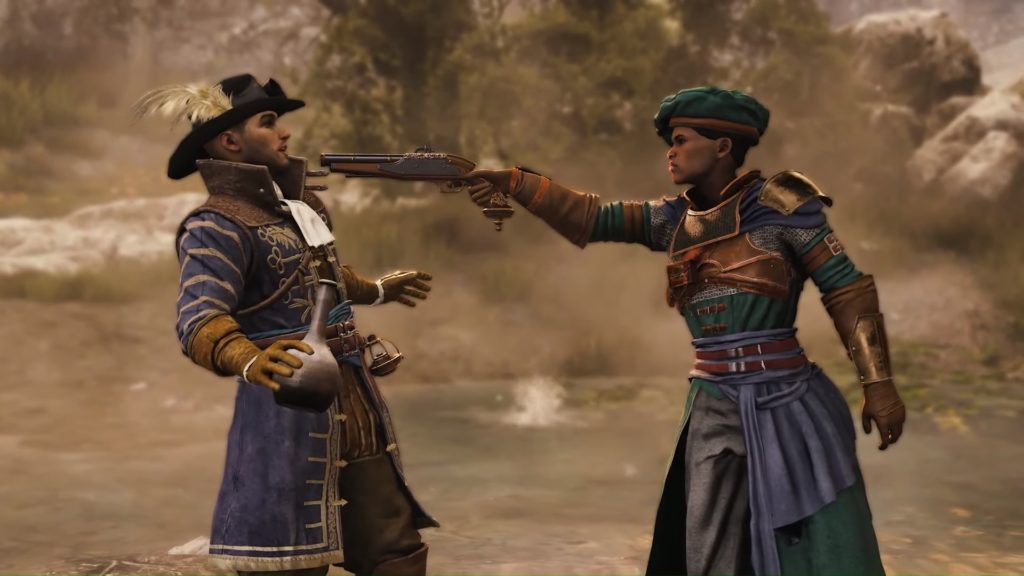
De Sardet is not alone during their conquest. Greedfall features a 2-man companion system, complete with exclusive quests dealing with their backstory. Each of these companions fills a role in the party both in combat and narratively. It’s a clear bit of inspiration from past Bioware titles, just without the overbearing romance attempts constantly popping up. Depending on the player’s actions, companions will either bond with De Sardet or end up leaving. Keeping people happy is simply a case of thinking for a few seconds before acting. Anyone who belongs to one of the various factions found in the game will dislike any ill will imposed on their brethren. It’s not all that deep, nor does it get in the way. To be blunt, it’s a feature that works but never excels.
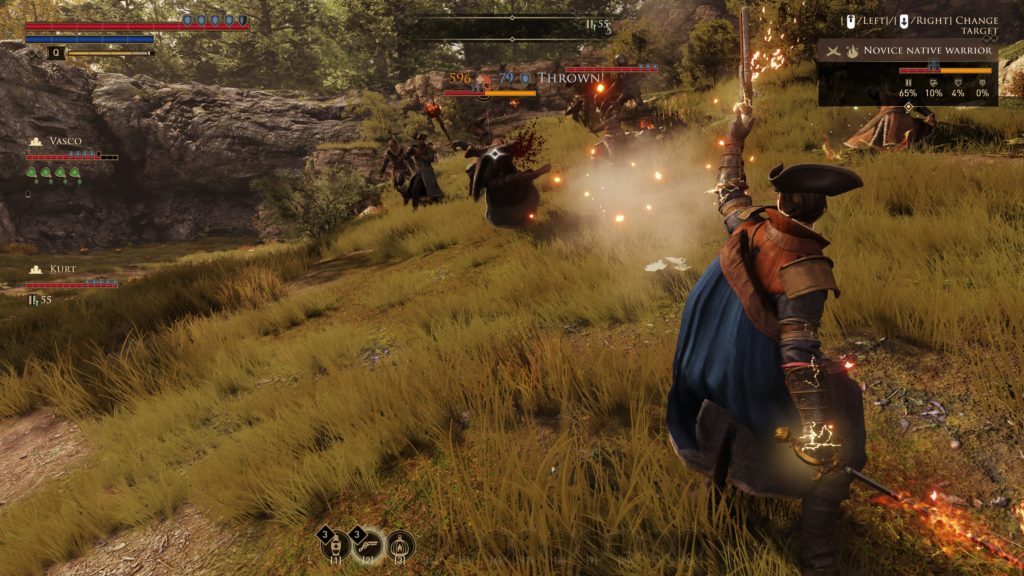
Unsurprisingly, Greedfall takes from a lot of systems seen in the current market. Character building orbits around three archetypes that fall into the typical Warrior/Rogue/Caster format. There is room to experiment thanks to Spiders’ foresight into not locking the player into a set role. Completionist players will enjoy the ability to create hybrids between throwing heavy weapons mixed with the ability to cast spells, while those looking to simply get experience will see enough abilities to give them a fair sense of depth. De Sardet can be further developed by selecting by spending points in Skill & Talents, both of which tangibly affect how the player can approach the game. Skills provide stat bonuses (HP, HP regen, agility) that are needed to use certain weapons and armour. Talents affect actions outside of combat like convincing people through speech, jumping large gaps or blowing up weakened areas to create entrances.
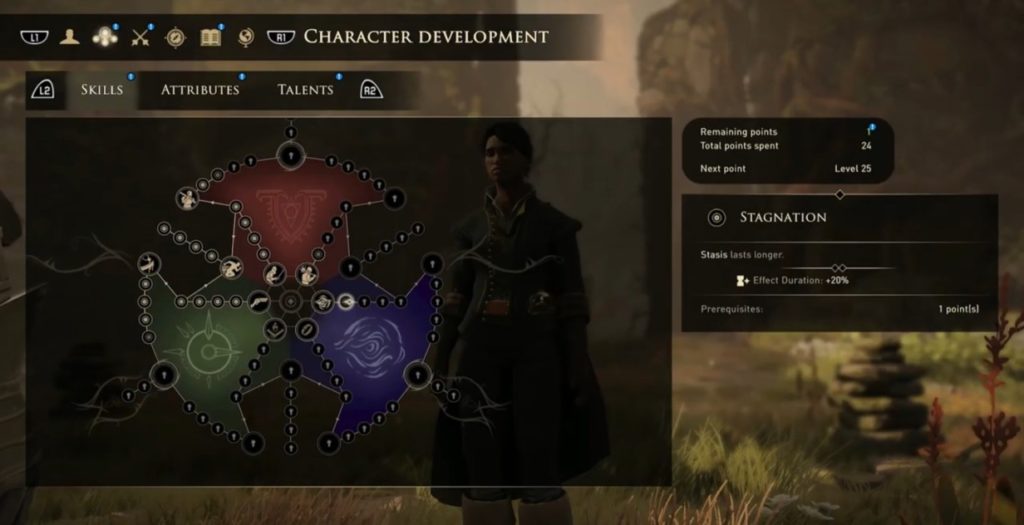
Hosting these systems can normally prove to be a strict limitation over how much sway the player has over their character, but Greedfall manages to avoid this to a certain degree. Where ‘Triple A’ titles struggle with balancing perk menus and player control over their character, Spiders have managed to craft a system that does enough to keep the player in touch with their actions. There are no cases of feeling like De Sardet is simply a list of perks and nothing more, which is a nice surprise, to say the least. And if the character build crafted isn’t suiting the player, just reset with a few crystals sprinkled throughout the game.
Greedfall’s approach to weapons and armour isn’t anything new or compelling but is surprisingly robust. Each equipable item (which can also be equipped by your party members) comes with a bevy of stats, some of which act as buffs towards talents. A hat or set of gloves may increase lock picking or charisma, maybe been a point in vigor or two. This is on top of static stats such as armour and resistances. There’s a splash of Blizzard-inspired design to it all, including the colour coordinated rarity tiers of items. The system allows each drop to spark up intrigue, with a splash of blue or purple eliciting excitement.
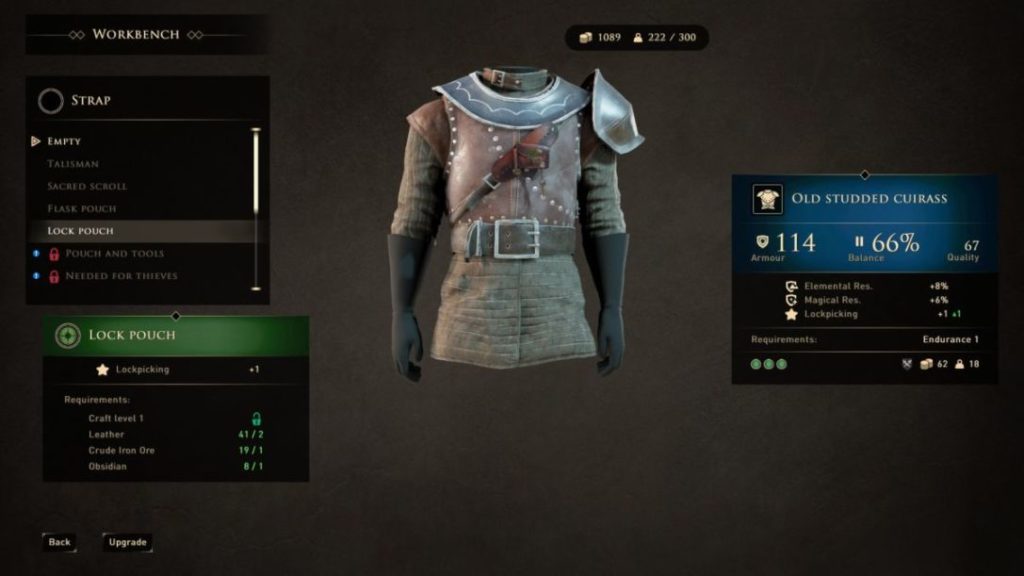
If the roll of the dice is favourable, loot can be further enhanced through customization. Socketed items can have stats added to them which are represented through visual cosmetics. Want more armour on that fancy doublet? Attach some chainmail to the shoulder. Improved picking locking? Throw on a belt with a few picks inside. Is it a deep system that rewards a fine eye for detail? No, but it doesn’t have to be. Customizing gear is simple, efficient and satisfying. Even those wanting to put on a fashion show can nibble on the flamboyant affair.
Combat makes up a fair chunk of Greedfall, whether that’s to its detriment or not. The standard format of Light attack, heavy attack, parry, dodge, and spell is fully present here. There’s only really one addition to speak of coming in the form of the tactical pause feature. Not only will this bring a halt to all the action, but it also allows the player to make a choice on their next move. This could be anything from a basic attack to firing a gun or planting a trap. For the bulk of the game, the option isn’t needed to defeat foes, but having it gives some level of variety other action-RPGs are sorely lacking.
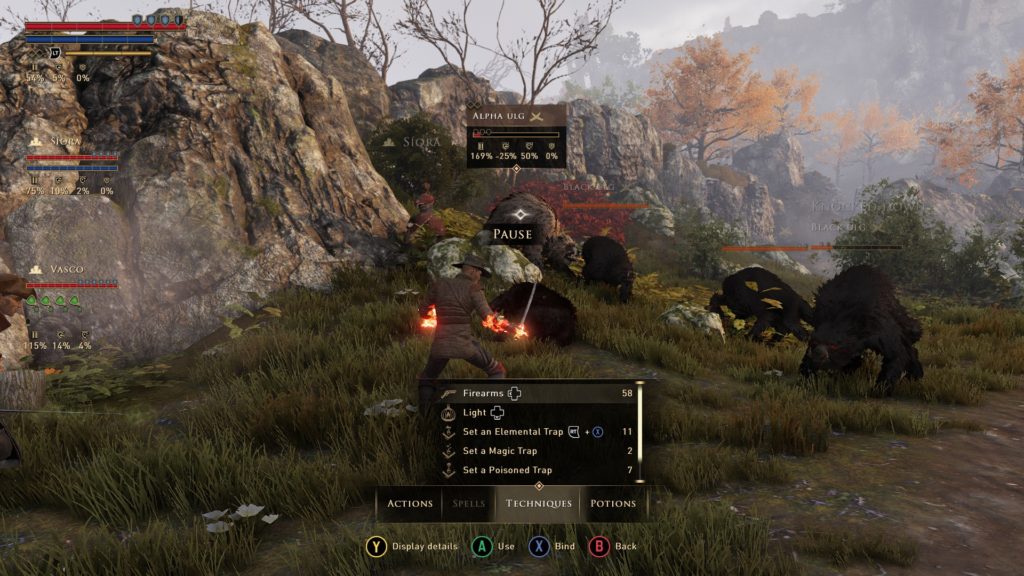
The enemies that stand in De Sardet’s way aren’t exactly the most testing of foes. A heavy mix of monsters, humanoids, and wildlife all want a piece of that merchant arse, but only a few are capable of getting any. Large enemies suffer from clearly telegraphed attacks which can easily be avoided. Smaller threats often rely on spamming the same attack over and over until either they or De Sardet stop moving. Humanoids fall victim to the curse of the parry, in which all their attacks are merely swatted away by the press of a single button. Things aren’t helped by some questionable AI which results in battles that feel more like kicking a child in the knee rather than slaying an imposing threat.
Greedfall may not be a big-budget game, but the visuals certainly do not show it. De Sardet’s quest plays out across a beautiful array of environments that are truly a credit to the art team. The ability to showcase the ‘brave new world’ interchanging with a beautiful lush landscape is, at times, breathtaking. A true sense of charm and character is at the heart of Greedfall’s beauty. The sun shining down on the plate shoulder pads of guards to the sun rays dancing between the tree. It’s hard not to take a moment to soak it all in.
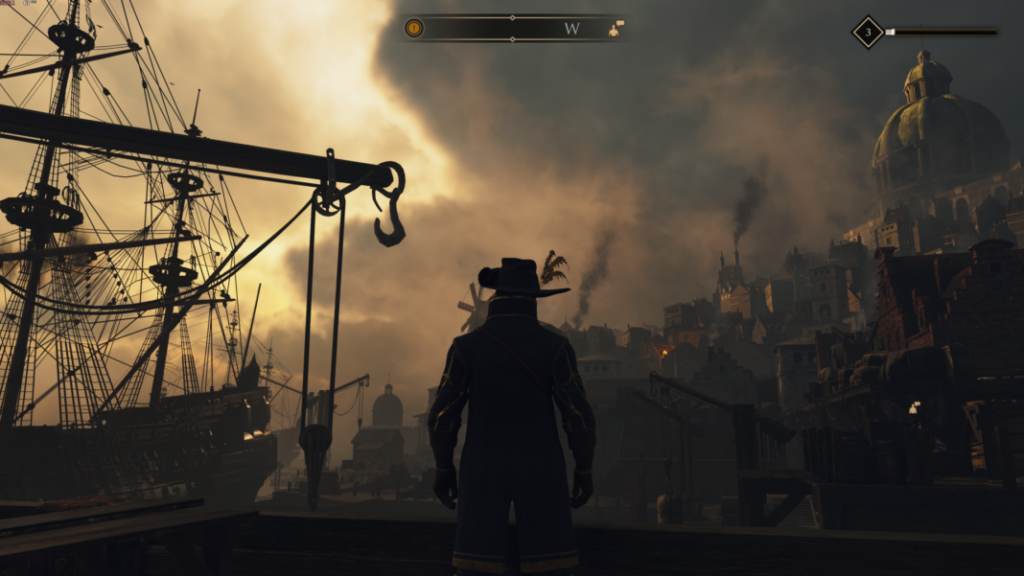
Exploration plays a key role in progressing the core story, seeing Der Sardet travel across the island. Each section of the island is cut-up into hubs, containing quests, campsites, and points of interest. The format is closer to MMORPGs than a standard RPG, but this isn’t necessarily a bad thing. With an abundance of tasks to complete in each hub, there’s plenty of time for players to explore different character builds, weapons and mechanics. As long as you don’t mind some dated fetch quests.
Cities look like works in progress they are. Construction litters the streets with the only break being the luxurious buildings of the Government. Although the lack of NPCs populating the streets may be a little jarring, the work Spiders have put in to create great-looking environments cannot be ignored.
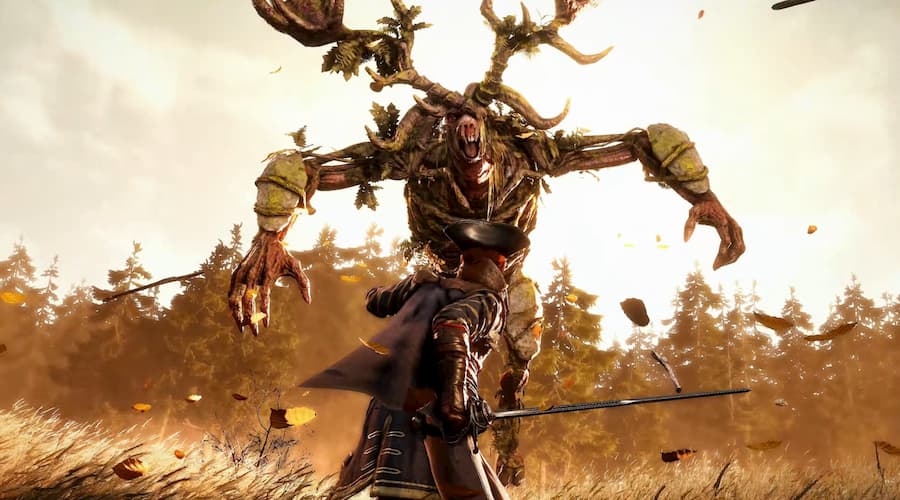
Greedfall is ambitious, this cannot be denied. In truth, it does a number of things better than its ‘Triple A counter-parts’. The main problem it suffers from is that while it tries to replicate its peers, it also falls victim to a number of the same issues, even when it had the chance to outdo them. Combat is functional but never grows into anything more. For all the charm the world oozes, the player is seemingly constantly drifting around it and never in it.
De Sardet’s exploits dance around many themes and topics that provide interesting possible outcomes but often end up feeling too familiar. It’s a genuine shame there isn’t more room for diplomacy or results that feel morally ambiguous. That being said, Greedfall is still a good game. A good game that could have been great.
 The Final Word
The Final Word
Spiders have shown true improvement from their last game. Greedfall is yet another sign that the middle market is more than alive, and still capable of doing a number of things better than its richer contemporaries. Large, interesting, but flawed. Greedfall could be the game that 2019 forgets, but cult status could quite easily be on the cards.
– MonsterVine Review Score: 4 out of 5 – Good

